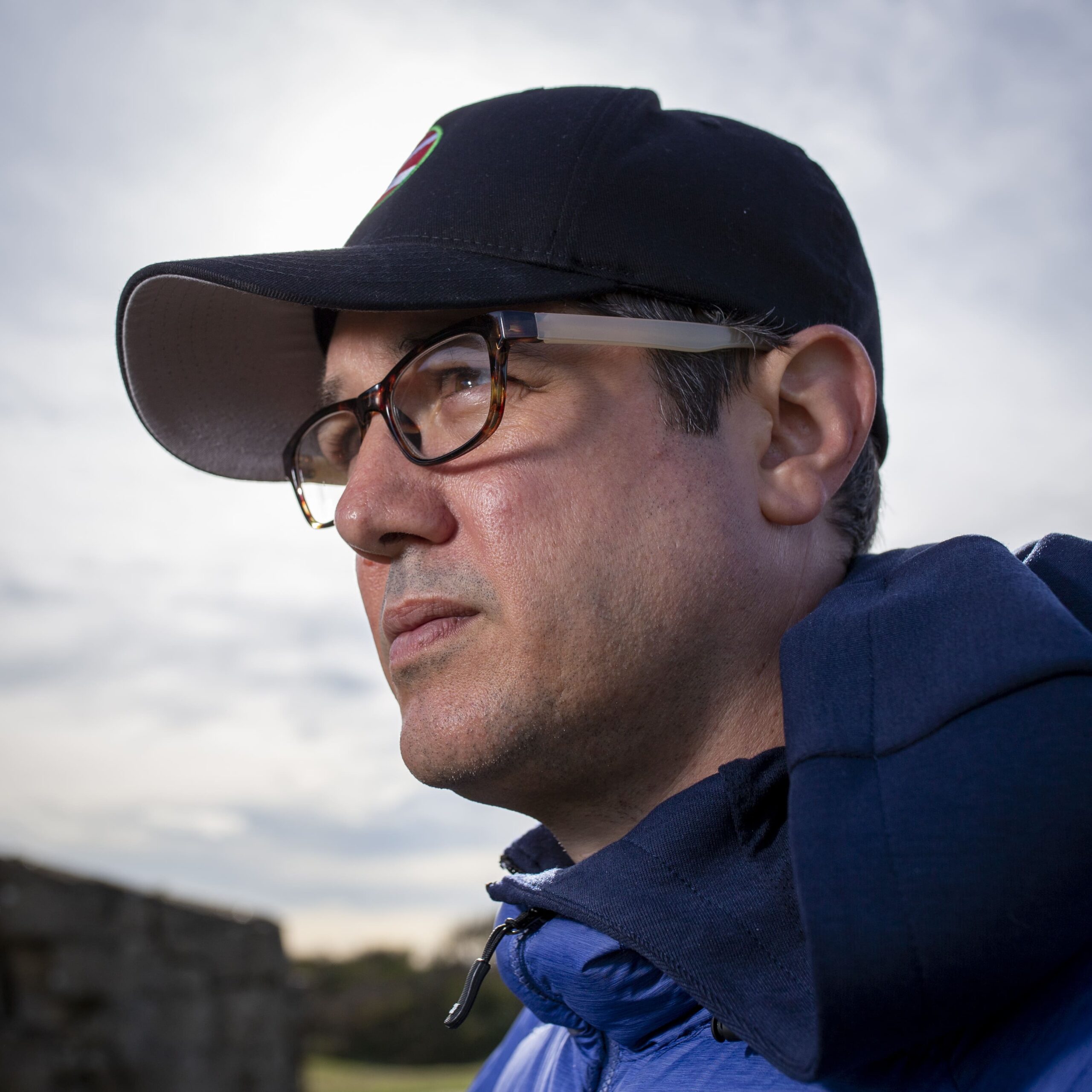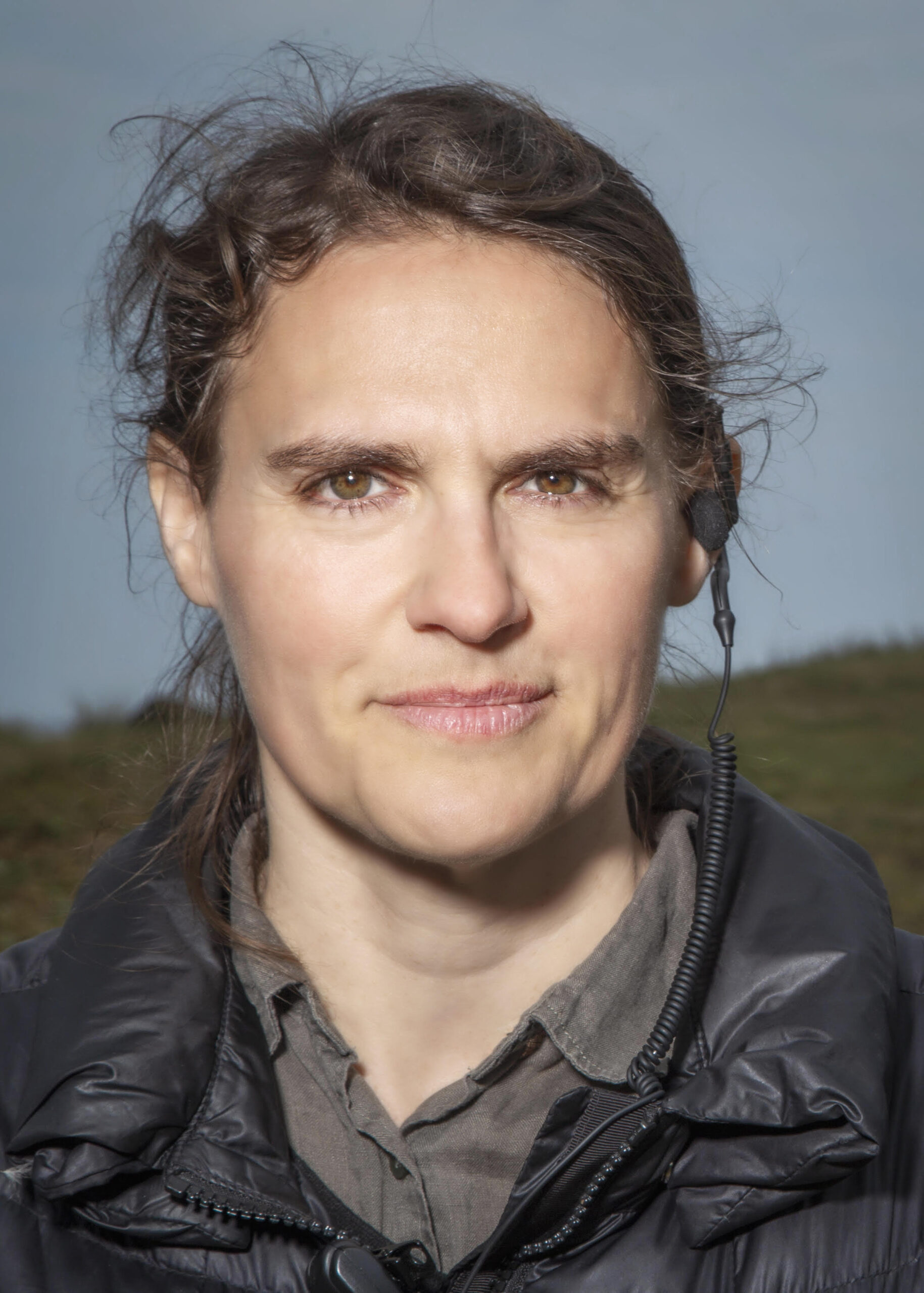Colette, the documentary short nominated for an Oscar, tells the story of Colette Marin-Catherine, who as a young girl fought the Nazis as a member of the French Resistance. Since 1945, she has refused to set foot in Germany. That changes when a history student named Lucie enters her life and encourages her to visit the concentration camp (Mittelbau-Dora near Nordhausen) where the Nazis killed her brother. The film follows Colette as she travels with Lucie to what remains of the forced labor camp. The emphasis of the movie production is about trust, courage, and the importance of memory. We interview Director Anthony Giacchino and producer Alice Doyard to ask them some questions before Oscar night.

First of all, thank you for being here, and congratulations on the Oscar nomination for Best Documentary in the Short category. La Voce di New York tries to give a voice to people who produce movies and creative content for the entertainment and cinema industry during these challenging times. Let’s start by asking you, how did you get to know Colette’s story?
Alice Doyard: “When we first met Colette it was for a simple interview. Anthony and I were blown away by her personality. Anthony loves to document history, it’s his passion. Colette brought back some very vivid memories of the war. She talked to Anthony as if we were back in 1943. And I am personally interested in the Women’s Resistance because of my own family. I know a couple of women who worked in the Resistance and I thought, ‘This one is very particular, she has a voice like no other’. She was in the Resistance during the war, but she was a combative woman all her life. Anthony and I thought, ‘this is a woman that deserves more than an interview’. One thing led to another and it turned into a whole film about her experience.”

Anthony Giacchino: “Indeed, we didn’t know who Colette was, what I like about it in a general sense is that it makes you think about the stories that we don’t know about people who are next to us, sitting on a bus or on the subway, etc… We were lucky to know her. I think everyone has something to say.”
What was it like to direct Colette, considering how real and authentic is her personality?
Anthony Giacchino: “I don’t even know if we can say we could direct her. It was more like capturing her in the moments we had her. Because as you see in the film, there is a particular moment when she tells us just to stop and everybody sits down. We were there to capture this journey, I love the word that Colette and Lucie used for it, which is pilgrimage. There were months and months of preparation for this, and not only because we were coming from the United States. Colette trusted us to tell her story, Alice had a very long discussion about what would have been really meaningful for her if she visited the Nordhausen Camp. We suggested it, and when it finally felt right for her then she was ready to go. There was a lot of respect for her and generally among us crew members.”

How did you manage the production process?
Anthony Giacchino: “The film had an interesting origin. Colette was co-produced by Electronic Arts’ Respawn Entertainment and Facebook’s Oculus Studios and distributed by The Guardian. Electronic Arts and Oculus Studios were developing a game about World War II (Medal of Honor). I was contacted and told they needed educational content to accompany the game. I met Alice when I was in France looking for stories, that’s when we heard about Colette. At the end of summer in 2019, we had a conversation with Electronic Arts to convince them that Colette’s story deserved to have a life outside the game. After we finished distribution, we entered a few festivals and won several awards until we qualified for the Oscars.”

Was it a difficult project to carry out?
Alice Doyard: “It was not easy, it was very clear to us that we wanted to do something that made sense to Colette. Colette has said, ‘I don’t want to go to the Dora camp, my brother died there but I never wanted to go there, I don’t like morbid tourism’. When she started to realize what she wanted, we found Lucie. Anthony and I wanted to build a bridge for the new generation. When you want to see people connecting on film you need two people, two entities. We happened to be extremely lucky to meet this young Lucie. She is seventeen, the same age as Colette’s brother when he got arrested. She is a student and aspiring historian, very keen, determined to travel to the concentration camp for the first time to support her research. As a producer, I can say that the idea was to find a story that reflected what we felt when we first met Colette.”
Anthony Giacchino: “We had no idea it would work so well between the two of them, and we had no idea they would become as intimate as they did on camera. This journey accelerated a process of friendship.”

I was touched by their friendship and bond, especially when Colette gives Lucie her brother’s ring. Was that spontaneous?
Anthony Giacchino: “Yes. To me, that gesture represents the idea we see in the film: Colette wants to forget the past to survive and move on. Lucie wants to remember the past to move on and survive. At the end of the journey, Colette understands Lucie’s point about remembering. With the ring, this becomes concrete; she passes on the story. Colette tells her, ‘You’re going to keep it for the next hundred years, and you’re going to remember it’, that’s very meaningful.”
Alice Doyard: “There is a poetic symbolism in giving Lucie this ring. Colette had a difficult life, even after the war. Her whole life is made up of struggles. She takes comfort in poetry, in the symbols. By giving this ring, she has done something that really makes sense to her, that makes it real.”

The general concern is about figuring out how the new generation deals with the past, since we are all busy trying to forget the bad things caused by the pandemic, for example. Do you think the documentary genre, especially your work, can contribute to giving a concrete sense of memory, history, and human responsibility?
Anthony Giacchino: “That was our hope. I talked a little bit about that when I mentioned the tension between Colette’s point of view on remembering and Lucies’s. If I had to choose, I would follow Lucie’s notion. Meaning that we need to understand what happened in the past, because Lucie does have this optimistic view about ‘never again’. I don’t think she realized this would have been so emotional for her. It’s better if we’re able to find the strength to face the dark moments of our country’s past. In the United States we are in serious need of doing that. I hope that people watching this movie will think, ‘it’s okay to face the past and find ways to be better’”.

Alice Doyard: “We also had in mind, while making this film, whether some kind of healing was possible. This is what Lucie does: she looks squarely at the past and acknowledges the wounds we carry inside. This film sees two women at very different ages joining hands and facing the past. There is a kind of solidarity reminiscent of Colette’s decision to join the French Resistance when she was young and take part in collective action. In today’s world, we face a global threat that is the same for all of us, and what will we do? Are we ready to join hands?”

Any thoughts on the Oscar nomination?
Anthony Giacchino: “It’s a tremendous honor. I think about the moment when Jean Pierre was arrested by the Gestapo in a classroom, because he had put flowers on the grave of a Resistance fighter. We are connected to that moment. The celebration is shadowed by sadness because of that act of resistance that we are remembering. I just hope we don’t forget that in the midst of the celebration.”
Alice Doyard: “We can live on what we know, and what we have now is this amazing friendship between two women. A friend of ours told us we saved Colette from the scar that she bore of Jean Pierre’s memory. Thanks to the documentary she’s proud, and she talks about this experience to everybody.”

Both Alice Doyard and Anthony Giacchino have Italian roots. They are excited to share them with La Voce di New York, emphasizing the importance of the past and cultural bridges.
Anthony Giacchino: “My father’s family comes from Caccamo, Sicily, my mother’s family comes from Abruzzo, and they met in Philadelphia.”
Alice Doyard: “A part of my family was from Anversa and they had boats, they were trading with Venice, where my ancestors are from.”
We extend our best wishes that “Colette” may win the Academy Award and we are pleased that this conversation underscores the impact of stories that are worth telling and of the importance of the documentary genre.
Biographies

Anthony Giacchino is an Emmy Award winning filmmaker living in New York. His last documentary, The Giant’s Dream (Warner Bros.) tells the story behind Academy Award winning director Brad Bird’s first feature film, The Iron Giant.
His first feature-length documentary, The Camden 28, aired on the PBS series POV, and was nominated for a Writers Guild of America award for outstanding achievement in writing for the screen.
Giacchino is a former Fulbright Scholar at the Albert-Ludwigs-Universität in Freiburg, Germany.

Alice Doyard is an award-winning producer and director, with credits that include: Earthmasters: Playing God with the Climate (Arte), World War One from Above (BBC 1),
Immortality: A Scientific Investigation into Cryogenics (Arte), Inside France’s Young Far-Right (BBC News),
Paris Attacks (BBC News), Big Screen Splendors: Following Bridget Jones in London (Arte).











